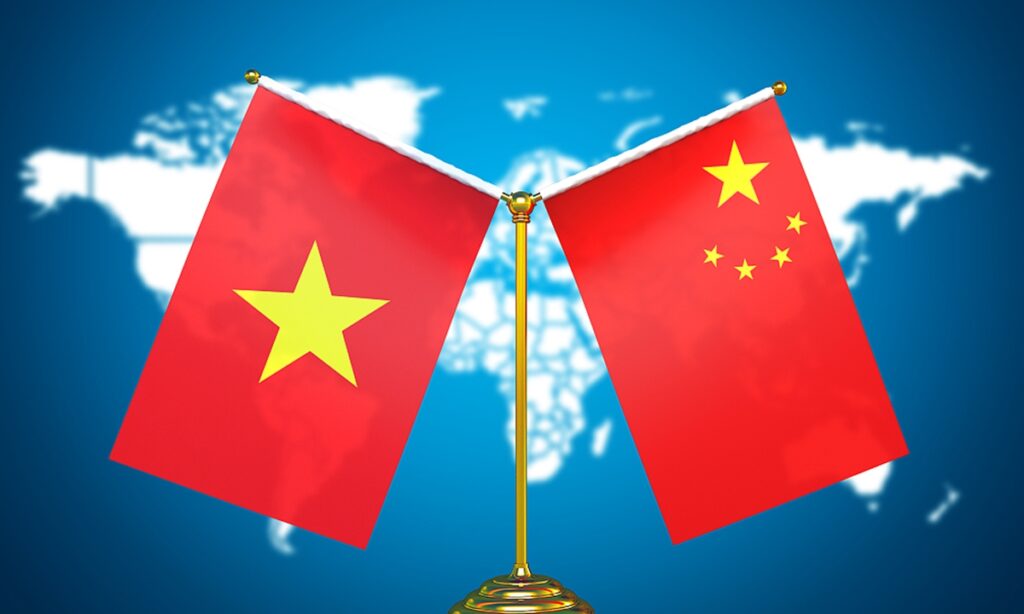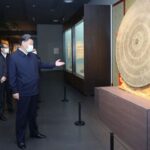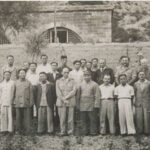Vietnam has made positive comments on its ties with China during Chinese State Councilor and Minister of National Defense Wei Fenghe’s visit to the country, stressing that Vietnam will never follow other countries in opposing China.
Chinese experts said on Tuesday that Hanoi is being increasingly mature and it has noted that the US-proposed Indo-Pacific Strategy will undermine regional integration, unity and peace, as it uses the divergences between regional countries to hype up and escalate tensions, and Hanoi doesn’t want to be made use of.
Wei met General Secretary of the Communist Party of Vietnam (CPV) Central Committee Nguyen Phu Trong and Vietnamese President Nguyen Xuan Phuc on Monday during his trip to Vietnam, the Xinhua News Agency reported Monday.
Extending congratulations on China’s success in fighting COVID-19 and achieving economic development, Trong called on the two countries to maintain and promote their traditional friendship, and advance the relationship between the two militaries of the two countries.
Regarding the issue of the South China Sea, Trong said the two countries should properly handle the issue based on mutual trust and respect, and prevent any related negative effect on bilateral relations.
Xu Liping, director of the Center for Southeast Asian Studies at the Chinese Academy of Social Sciences in Beijing, told the Global Times on Tuesday that “the relationship between the Communist Party of China [CPC] and the CPV has always guided and led the direction of China-Vietnam ties’ development. Through a series of tests in past decades, the CPC-CVP relationship is becoming a ballast stone that stabilizes tensions and seeks solutions based on mutual respect when the two sides have differences.”
China and Vietnam are both socialist countries, they share common interests in ideology and political security, and they are more integrated in terms of economy, said Chinese analysts.
The CPV general secretary also said that the two Parties and countries will make greater efforts in maintaining a peaceful and cooperative environment on the basis of respecting legitimate rights of each other and their friendship, for peace, stability and cooperation in the region and the world, according to the Vietnam News Agency (VNA).
Nguyen Xuan Phuc, the Vietnamese president, said Vietnam supports China to thrive and makes increasingly active and practical contributions to peace, stability and development in the region and the world, VNA reported.
Phuc said Vietnam firmly upholds the one-China principle and opposes any forces’ interference in China’s internal affairs. Vietnam will never follow some other countries in opposing China, Xinhua reported.
This is not just a friendly expression toward China, but also a clear signal to the US and other Western countries outside the region that Vietnam will not be used by any external forces, Xu said, noting that in the past, the US has made efforts to lure Vietnam to serve its strategic purpose of containing China, but such attempts will fail due to the independent and mature political stance of Hanoi.
After experiencing a series of frictions and tensions in past few years, Vietnam and many other regional countries have learned that the US intervention in the South China Sea issue, as well as the latest Indo-Pacific Strategy proposed by Washington, are intended to divide the region, to undermine regional integration, and to make use of divergences and disputes between regional countries to hype and create tensions, said Chinese experts on foreign affairs.
Gu Xiaosong, an expert on Southeast Asian studies at the Guangxi Academy of Social Sciences, told the Global Times on Tuesday that China continues to be Vietnam’s biggest trade partner despite the negative impact brought about by the severe COVID-19 pandemic, which reflected how these two countries value their relationship and help each other, especially in times of hardship.
China-Vietnam trade reached over 133 billion dollars in 2020, up 13.8 percent year-on-year, according to data on the Chinese Ministry of Commerce website.
Gu predicted that Hanoi’s Cat Linh-Ha Dong metro line, the country’s first which is being built by China Railway Sixth Group Co and expected to be handed over to the city authorities for commercial cooperation in May, will serve as a flagship project for China’s local investment, and further enhance friendly ties.
On his part, Wei said China and Vietnam are a community with a shared future of strategic significance, and have both achieved success in economic development as well as fighting the pandemic, demonstrating the strengths of the leadership of the Communist parties and the socialist system.
The two sides should implement the consensus reached by the leaders of the two countries, improve strategic communication, enhance political mutual trust and deepen military cooperation to further advance the China-Vietnam comprehensive strategic cooperative partnership, Wei said.
On the South China Sea issue, China and Vietnam should take a broad and long-term perspective, properly handle differences, plan maritime cooperation well, resolutely stand against interference from powers outside the region, and jointly protect the peace in the South China Sea, said the Chinese defense minister.
Earlier on Sunday, Wei met and held talks with Vietnamese defense chief Phan Van Giang and the two witnessed the signing of a memorandum of understanding on strengthening international military cooperation between the national defense ministries of China and Vietnam.
The presence of both the General Secretary of the CPV Central Committee Nguyen Phu Trong and the Vietnamese President Nguyen Xuan Phuc in receiving Wei also demonstrated the high importance the Southeast Asian attached to its relations with China, observers said.
The exchange by the CPC-CPV leaders is a unique and crucial characteristic of the development of China-Vietnam ties, which also guarantees that such development is always on the right track despite their differences over the South China Sea issue, Gu said.
Photo:VCG




